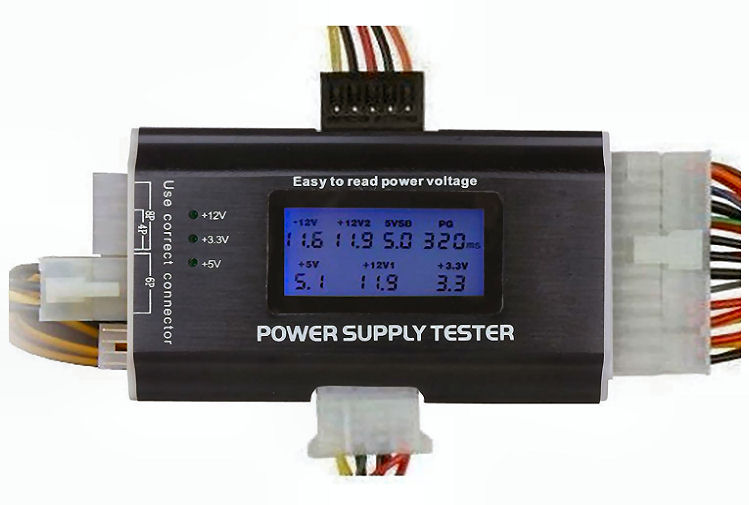[koko] tales of sensory power in today’s world
Two mornings ago I discovered my ca 2015 Dell Optiplex 9010 was non-responsive, with the power button flashing amber. From experience (with mechanical disks obsolescent, power supplies are the most likely computer component to fail), I assumed the power supply to be the problem. So I ordered a replacement for next-day delivery. When the power supply arrived and I installed it, the machine seemed the same, still flashing amber. Though the code flashes also could indicate a failed system board, it seemed worth following through with the power supply. The replacement supply was failing, according to my tester. The tester said the old supply was good!? I pulled a known good supply out of a working Dell Vostro (ATX). Though not a fit mechanically, that supply brought the Optiplex back to life. Reinstating the original Optiplex supply, the machine is back to normal.
Though puzzling, I presume that the repeated unplugging/replugging of connectors effectively removed accumulated corrosion and resolved the problem. There is a precedent. A 2007 Dell Dimension 8300 that I occasionally use with Windows XP or Fedora 19 has PATA disks. When I power it on, I expect the self-test to not find the disks. Then I unplug/replug the disk connectors and the machine works as expected.
Just as the sensors in the Optiplex alerted to hidden problems, two more experiences with sensors last evening brought a realization of their import/prominence.
After putting all the computer stuff back in place, I intended to still follow my usual treadmill routine. Switching on the NordicTrack, it too had malfunctioned. The sensor that indicates elevation was blank instead of my typical 10 degrees. The treadmill was obviously still at that maximum elevation, but not responsive. After power cycling several times, the sensor seemed to work again. The treadmill reset to 0-degree elevation, the belt worked on the level, I raised it back to 10 degrees, and proceeded to exercise.
![]() On the drive to pick up a phone order from Suzi’s Chinese[1], a TPMS warning startled me. The tires are just over a year old, with at most a few thousand miles traveled, and the car had just had dealer service. The tires looked ok when I got to Suzi’s, so I proceeded home, unnerved but without difficulty. This morning they all measured just under 30 PSI, vs. the maximum 50 PSI, so the sensor was right. Presumably, colder weather had lowered the tire pressure just below the sensory threshold. The electric pump for my bike slowly filled the tires to the chosen 45 PSI setting. After driving a few miles this afternoon the TPMS warning went away.
On the drive to pick up a phone order from Suzi’s Chinese[1], a TPMS warning startled me. The tires are just over a year old, with at most a few thousand miles traveled, and the car had just had dealer service. The tires looked ok when I got to Suzi’s, so I proceeded home, unnerved but without difficulty. This morning they all measured just under 30 PSI, vs. the maximum 50 PSI, so the sensor was right. Presumably, colder weather had lowered the tire pressure just below the sensory threshold. The electric pump for my bike slowly filled the tires to the chosen 45 PSI setting. After driving a few miles this afternoon the TPMS warning went away.
A friend had major cervical repair a month ago and is slowly recovering. I’m used to seeing him on Zoom, but last week Zoom stopped recognizing his camera. Three days ago I visited him at the hospital, partly just to visit, but also to try to resolve the camera problem. It soon seemed likely that the camera driver had misbehaved. Rebooting brought things back to normal.
About 5 years ago our, then 15-year-old, electric oven temperature sensor became erratic. Our trusted technician said that it was unreasonable to replace the sensor without replacing the entire oven. After a few months of erratic behavior, the sensor has since seemed reliable.
We’re more dependent on such sensors than I realized before today. Sometimes they are just what we need. Sometimes they malfunction and mislead. Rebooting is more likely the solution than shooting…

You must be logged in to post a comment.